I have said it before and I’ll say it again…
There IS such a thing as good reading and bad reading.
The good news is, there’s actually lots of different ways to be a good reader. No single kind of reading diet, list of book prescriptions, or number of pages read in a week makes a good reader out of someone.
SO what does make a good reader? I’ll start with being honest — I’m not really in any position to answer this question with any kind of real authority. I don’t have a degree in education, literature, or even that impressive of a bookshelf. All I have is observations of the KIND of people that I look at and say “I want to read like you one day.”
I’ve got three of those said observations I want to share with you (and then yes you’ll get your book recs.)
1. Complexity Tolerance
The readers I admire move fluidly from accessible to challenging texts. They don't apologize for enjoying a beach read, but they also don't mistake cotton candy for a meal. They'll read a Ruth Ware Mystery one week and The Brothers Karamazov the next. They don’t hold reading for pure entertainment and reading for challenge at odds with each other — they legitimately enjoy doing both. It’s a balanced reading diet where a nutritious dinner and an indulgent dessert are both welcomed.
2. Perspective Agility
Good readers can step into worldviews that make them uncomfortable without losing their ability to think critically. They read conservatives and progressives, atheists and mystics, ancient texts and contemporary takes. They don't read to confirm what they already believe. That doesn’t scratch their itch. Instead they read to discover what they don't yet know or understand.
3. Form Fluency
The best readers navigate poetry, memoir, fiction, and philosophy with equal comfort. They don't get stuck in genre lanes or dismiss entire forms of writing because they're "not their thing." They understand that a sonnet teaches you things a novel cannot, that romance reveals truths sci-fi might miss, that some nonfiction asks questions fiction can only dance around.
These readers did not start this way. They became this way through practice, curiosity, and a willingness to be occasionally confused. The books that build this kind of reader? They are the books that kept them coming back for more — the ones they LIKED. That’s the whole thesis behind Read Your Color. It’s the idea that the right books FOR YOU are the ones that will help turn you into the reader I just described.
I hope this system and these books recs have helped do that. So here are six more fresh out of the literary oven.
Your Weekly Book Recs
Yellow Reader — A Kind of Freedom by Margaret Wilkerson Sexton)
Three generations of a New Orleans family—Evelyn (1940s), her daughter Jackie (1980s), and Jackie’s son T.C. (post-Katrina)—wrestle with love, constraint, and possibility. Big feeling, earned by history and place. Sexton makes every heartbreak and triumph feel weighty and real.
Purple Reader — Sleepless by Charlie Huston
A prion-driven insomnia pandemic is unraveling L.A.; a narcotics cop hunts the only drug that lets people dream. Noir, plague, and philosophy—rule-breaking without the bloat. This book feels like a fever dream in the best way for purple readers.
Red Reader — An Officer and a Spy by Robert Harris
The Dreyfus Affair told as a moral-pressure-cooker through Col. Georges Picquart, who uncovers forged evidence inside the French army. Elegant, relentless, and true to the history. Harris makes institutional corruption feel as gripping as any thriller, while keeping the stakes tethered to real injustice and the cost of one man’s courage.
Green Reader — The Age of Diagnosis by Suzanne O’Sullivan
A neurologist argues that our obsession with medical labels can harm patients and care—calling for wiser, more human diagnosis. Clear, rigorous, culture-correcting. O’Sullivan blends science with storytelling to show how our need for certainty can sometimes deepen suffering, challenging you to rethink health, identity, and empathy.
Orange Reader — The Bone Clocks by David Mitchell
Holly Sykes’s life (1984–2043) opens into a hidden war between immortals: globe-spanning, time-hopping, idea-rich. Vast world-building with a human pulse. Mitchell’s epic defies genre boundaries, fusing fantasy, realism, and philosophy into a single, breathtaking whole.
Blue Reader — Homage to Catalonia by George Orwell
Orwell’s firsthand account of the Spanish Civil War—idealism colliding with reality, politics stripped to human truth. Lucid, unsparing, essential. He waxes on loyalty, betrayal, and the blurry line between noble intention and brutal outcome, written with Orwell’s trademark clarity.



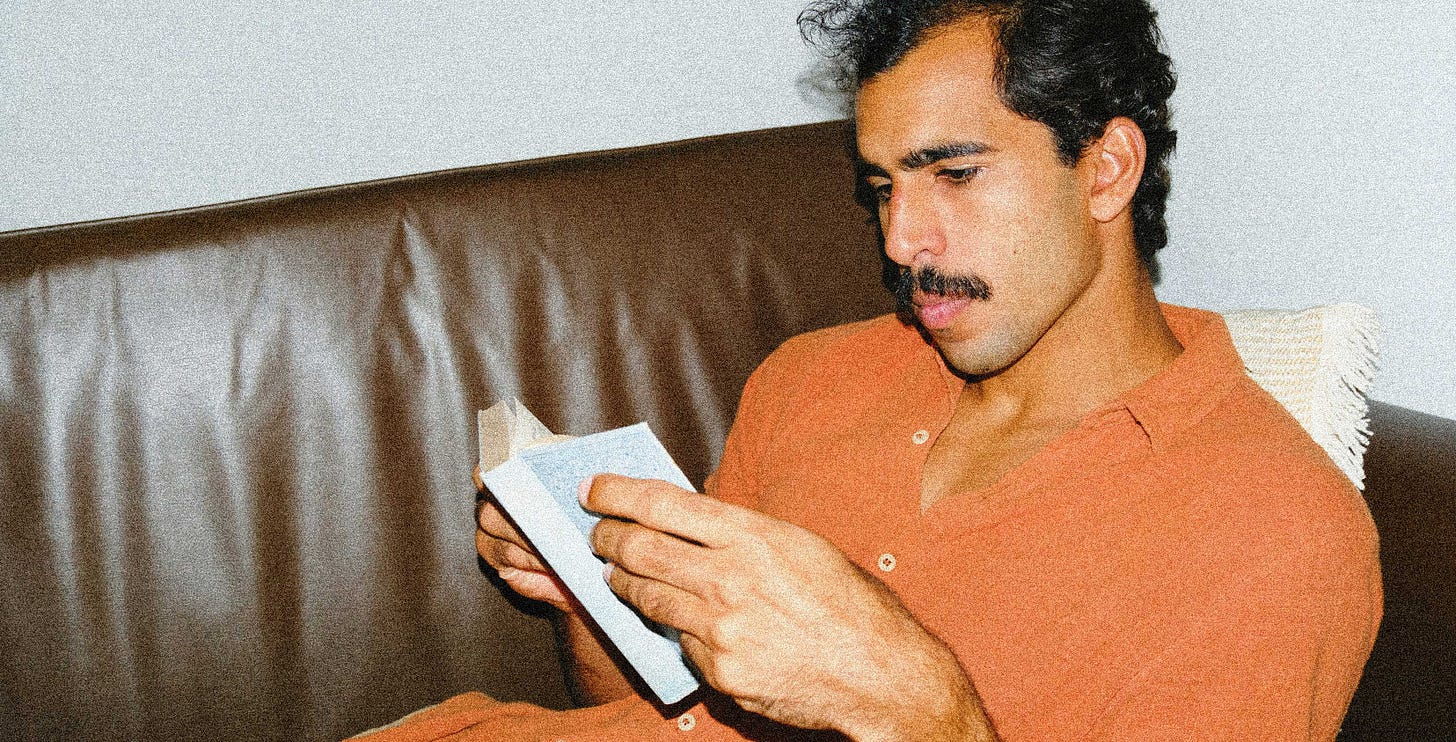
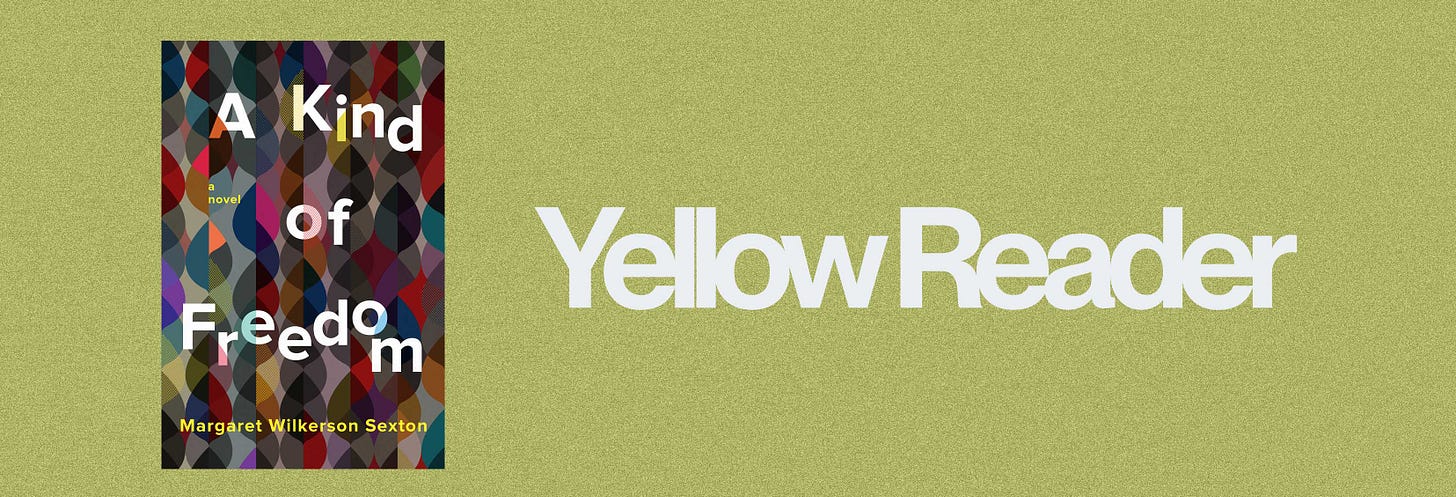
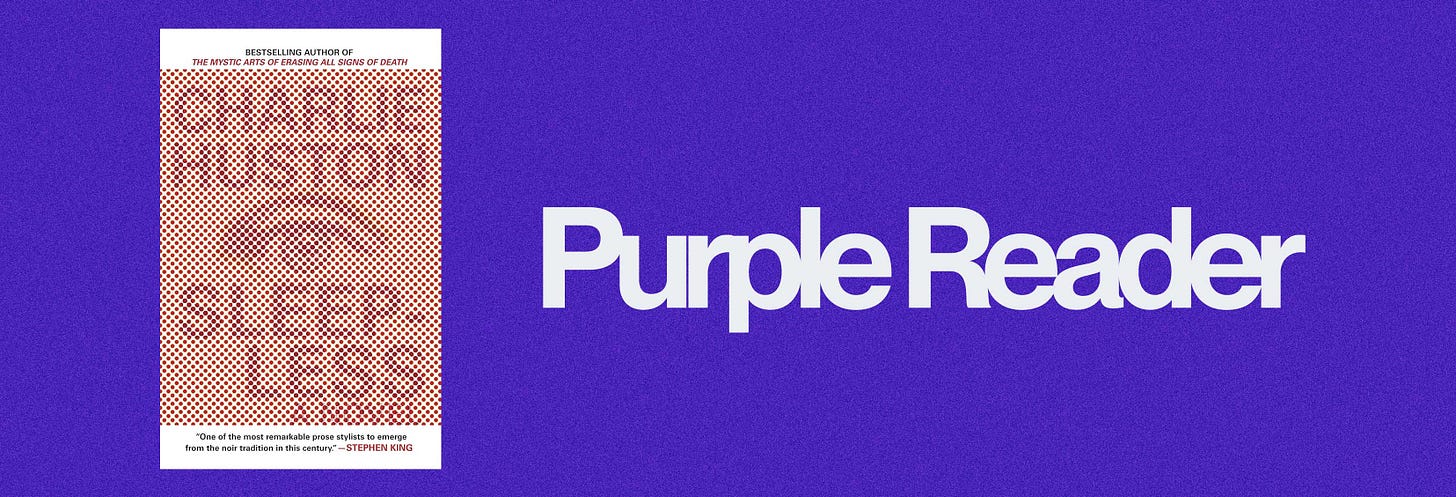
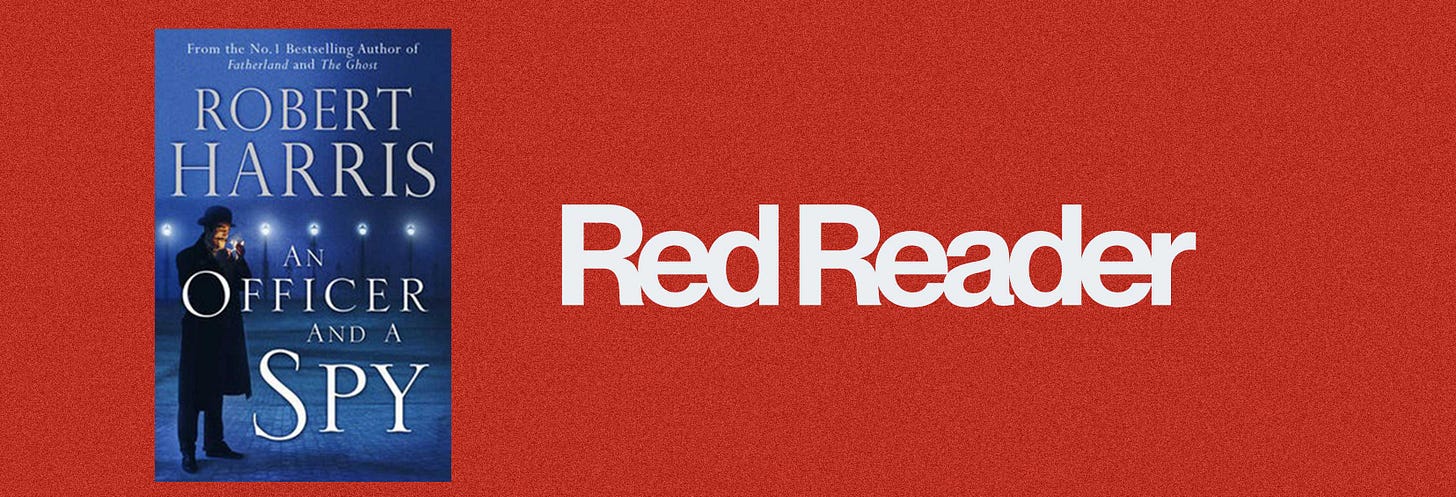
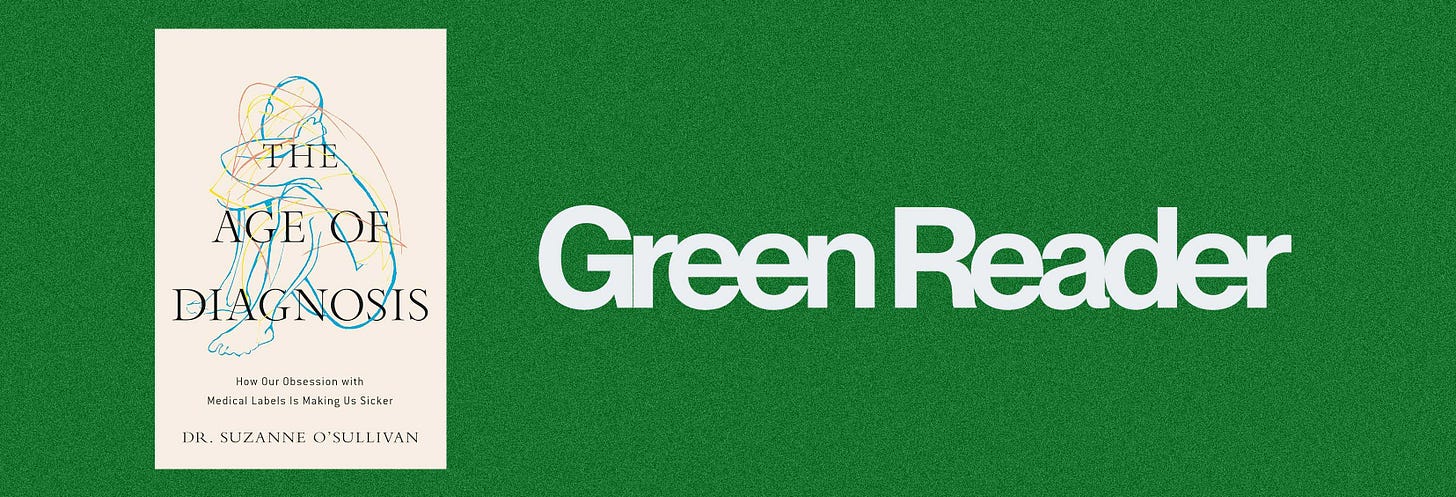
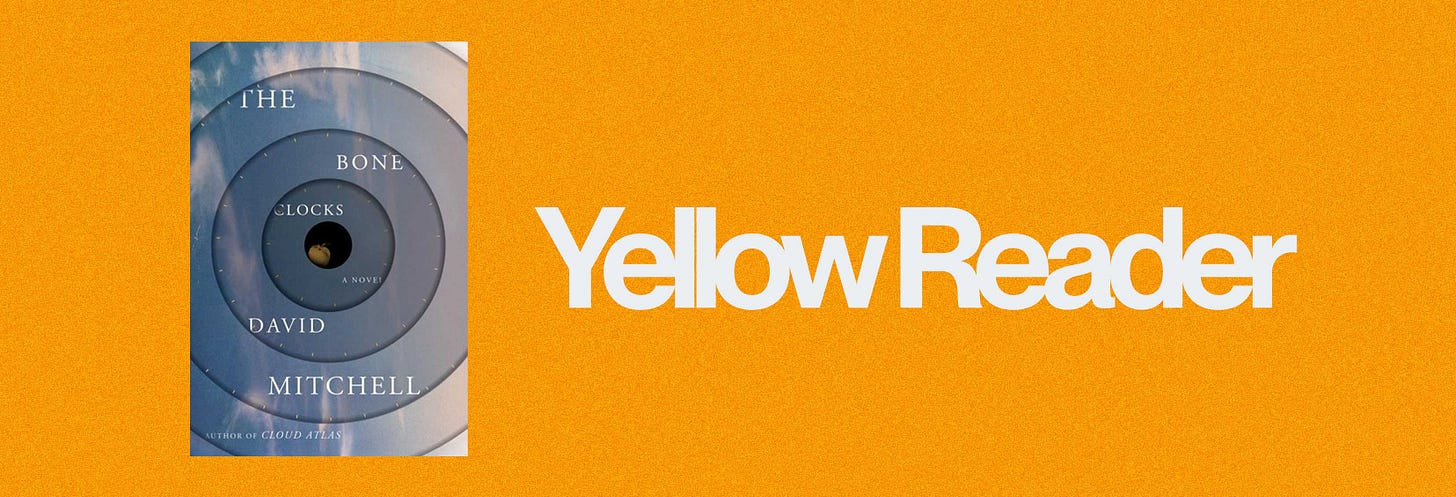
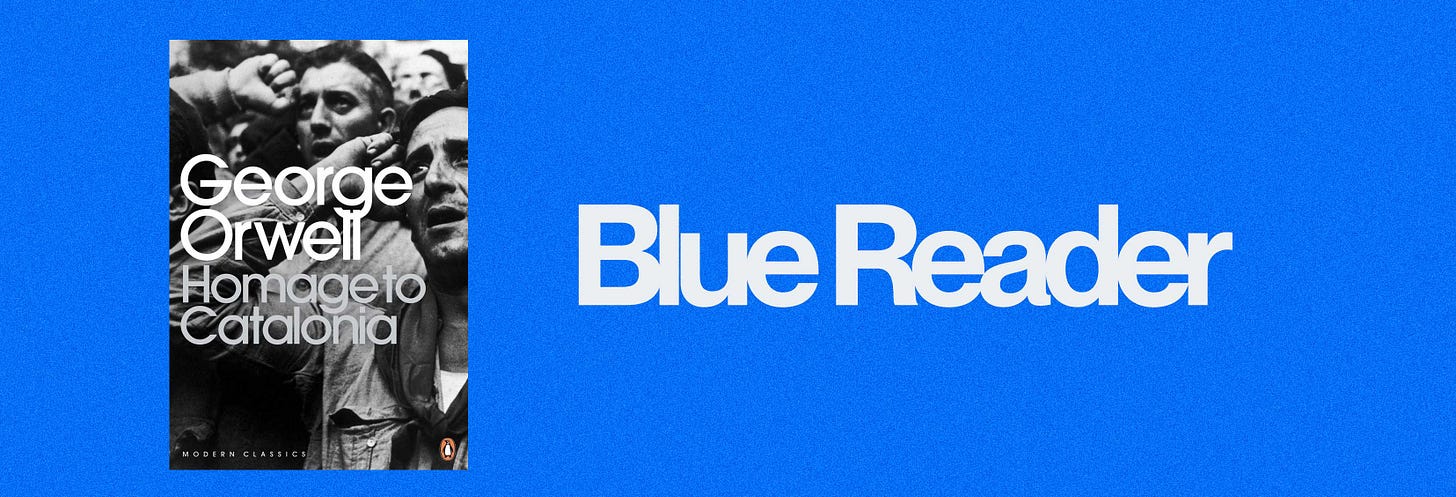
Reading your observations has me acknowledging to myself albeit grudgingly that I have a tendency to dismiss the romance genre as "not my thing"-time to shake that off and practice some of that form fluency-noted!
It makes me chuckle just how often your recommendation for my colour (red) is one of my favourite books. And you’ve done it again! An Officer and a Spy is fantastic. For me, it was both a compelling what’s-going-to-happen-next adventure and an opportunity to find out about a real-life historical event (much, much googling took place as I read). 👏👏👏
Just noticed your yellow rec. A Kind of Freedom is flipping brilliant too!